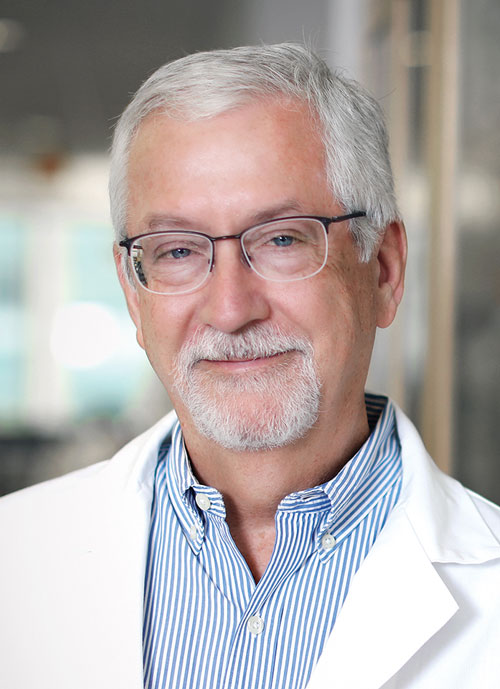Ley honored for groundbreaking leukemia research
Also recipient of Léopold Griffuel Prize for basic cancer research

Ley
Timothy J. Ley, MD, the Lewis T. and Rosalind B. Apple Professor of Medicine, has been honored by the American Society of Hematology with the Henry Stratton Medal, awarded annually to one basic scientist and one clinical or translational researcher who have made outstanding contributions to hematology.
He is being recognized for leading the effort to sequence the first human cancer genomes, from patients with acute myeloid leukemia (AML). These studies helped to create a foundation for the Cancer Genome Atlas, elucidated many previously unknown drivers of AML, and defined the role of clonal heterogeneity in AML progression and relapse.
Ley’s research focuses on understanding the molecular underpinnings of AML, including the acquired mutations and altered gene expression patterns responsible for the disease’s initiation, progression and relapse. A current focus of his work involves studying AML initiating events and how they reprogram hematopoietic stem and progenitor cells to make them more fit for transformation, with the aim of leading to new approaches for treating myeloid malignancies.
Ley shares the award with Robert Montgomery, MD, a clinical investigator from the Medical College of Wisconsin, who is being recognized for his contributions to the understanding of hemophilia.
Ley also recently was honored by France’s Fondation ARC for cancer research with the highly prestigious Léopold Griffuel Prize for basic research. Fondation ARC recognizes international cancer researchers who “think outside the box and persevere to translate research results into benefits for patients.”
He shared the 50th annual Griffuel Prize with Pasi A. Jänne, MD, PhD, of the Dana-Farber Cancer Institute, who studies the genetic changes that underlie the development of lung cancer. Both physician-scientists are featured in this video that highlights their approach to science and the significance of their discoveries.







